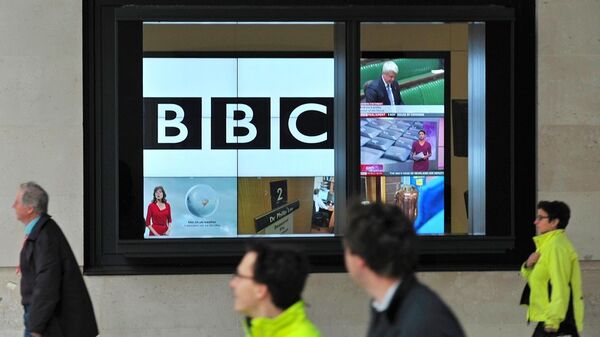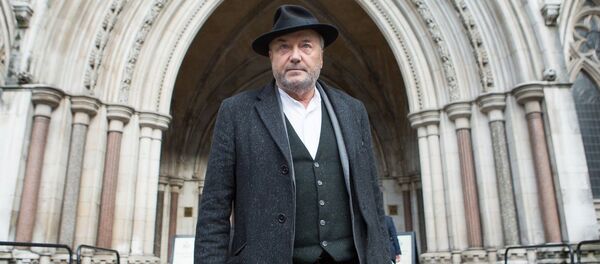There has been a long-running battle between the Conservatives and the BBC, which they believe to be a left-wing liberal organization that is fundamentally biased against their party. In the run-up to the general election, Cameron was quoted by some journalists as saying he would "close down" the BBC.
David Cameron. "I love the BBC so much…. " pic.twitter.com/YIvR0aD6nT
— beaubodor (@beaubodor) July 12, 2015
Cameron himself has very close links with media mogul Rupert Murdoch, who owns the Times and Sun newspaper in the UK as well as Sky TV. Murdoch has been highly critical of the BBC and has held dozens of meetings — along with his colleagues — with Cameron. It is widely quoted that Murdoch would like to see the back of the BBC and has made his views known to Cameron — a suggestion he denied under oath at the Leveson inquiry into newspaper hacking of peoples' mobile phones.
Even back in 2010, when Cameron became prime minister, the first thing he did was to pass on to the BBC the whole cost of funding BBC World Service, which had been paid for out of Foreign Office funds, which massively hit the BBC's budget at the time.
There has long been a battle over the way the BBC is funded — through a license fee collected from every TV set house owner to fund the corporation. Many say this is a form of state tax and that the BBC should find other ways of funding itself.
During the 2015 election campaign, the BBC was accused by a number of Conservatives — including Cameron — of hostile questioning and bias. In his first cabinet of the new government, Cameron immediately appointed John Whittingdale as Culture Secretary. He had been chairman of the Culture, Media and Sport Committee of MPs and has been critical of the profligacy of the BBC and of the license fee in particular.
In the first budget since winning a majority at the May general election, Chancellor George Osborne handed over to the BBC the $1170 million bill for giving away the license fee to the over 75s. Previously, the over 75s had their license fee paid for by the Department for Work and Pensions, but the need for savings forced the government to make the BBC take on the burden.
We want all public service broadcasting but the BBC spends £31,450 a day on taxis. Nobody should #BackTheBBC without serious reform.
— Logical Campaign (@LogicalCampaign) July 15, 2015
Osborne has been critical of the sheer scale of the BBC's website, which he argued was damaging national and local newspapers, who were losing advertising revenue because of the dominance of the BBC which he said was "completely crowding out national newspapers."
Rolling News to be Scarapped?
The government Thursday launched a green paper — effectively a discussion document — on the future of the BBC, suggesting it should do less, but better and keep more to its public service remit, rather than pump out populist programs. Sources in the media say the BBC is set for sweeping changes that could even see its rolling TV news channel confined to the web only as well as cuts to a raft of its services. The BBC has refused to comment on the rumors, but inside sources have told Sputnik that all options are open.
People who earn vast sums of money working for the BBC write letter to the government asking them not to reform the BBC.
— Lee Hurst (@2010LeeHurst) July 15, 2015
Launching the green paper, which will set in train discussions over the renewal of the BBC charter which is set to expire at the end of 2016, Whittingdale said:
"We need to ask some hard questions during this Charter Review [the period during which the BBC's charter of operation is discussed]. Questions about what the BBC should be trying to achieve in an age where consumer choice is now far more extensive than it has been, what its scale and scope should be in the light of those aims, how far it affects others in television, radio and online, and what the right structures are for its governance and regulation."
It is widely believed Whitingdale is looking for a slimmed down BBC, concentrating on what commercial broadcasters cannot provide cost-effectively — such as documentaries and drama. He believes the BBC is using public money to do all things to all men, in the face of a new digital landscape. Twenty years ago the BBC had two television channels and five national radio stations. It is now the largest public service broadcaster in the world, with nine television channels, ten national radio stations, and a major online presence.
I am feeling depressed at prospect of "root and branch reform" of @bbc, which I love Just The Way It Is.
— Nosy Crow (@NosyCrow) July 16, 2015
The long-running battle between the BBC and the Conservatives is about to enter a new phase with the government keen to show its pro-private sector credentials and see a smaller BBC. If the BBC is slimmed down and stopped from showing blockbuster programs that bring in huge audiences, which balance out its minority programing, eventually questions may be asked about its very existence and the use of a tax to raise revenues.





